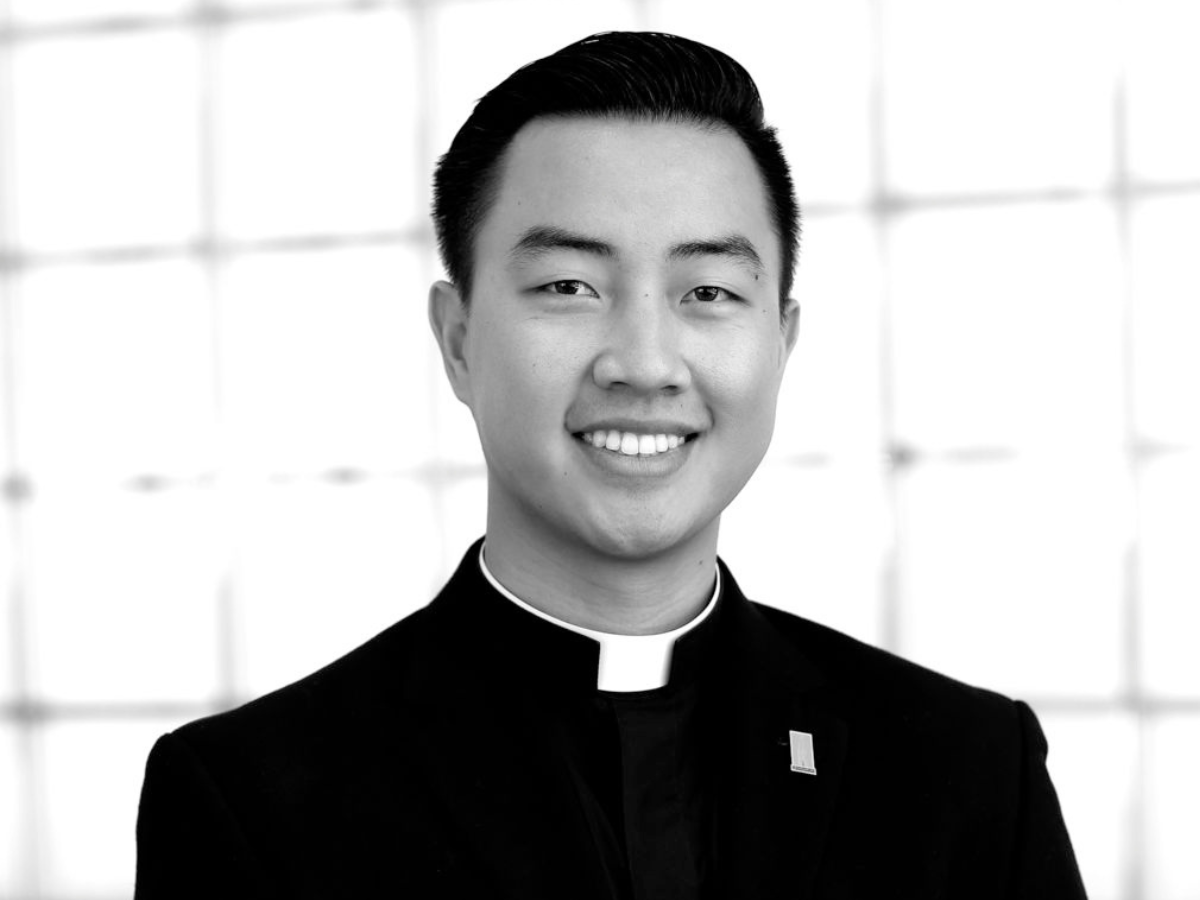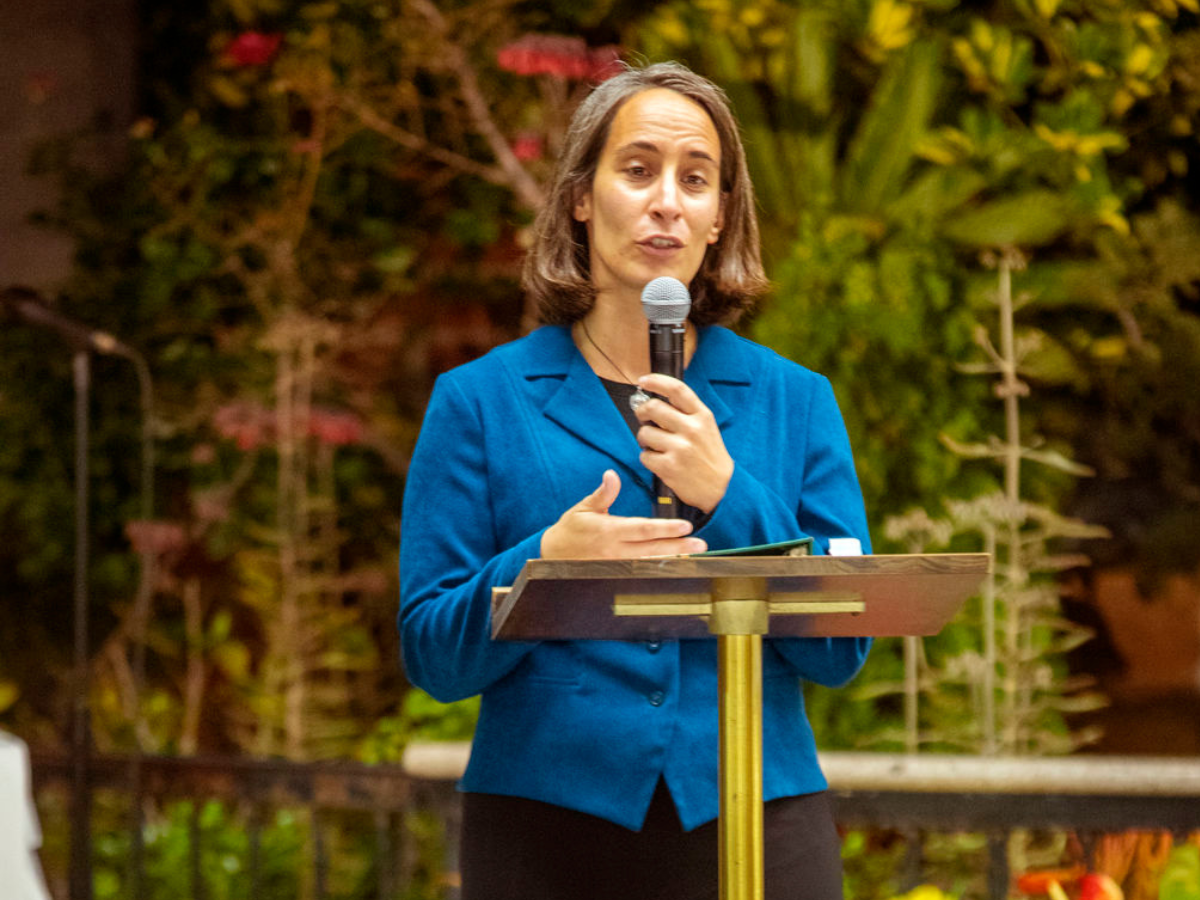What is a vocation? How do I discern my vocation? Is it possible to know God’s will for my life? Will I be happy?

JOAN PATTEN, AO, SPEAKS DURING A SPECIAL EVENT RECOGNIZING MEMBERS OF CONSECRATED LIFE AND JUBILARIANS AT ST. JOHN THE BAPTIST CHURCH IN COSTA MESA, ON FEB. 6, 2021. PHOTO BY SPENCER GRANT/DIOCESE OF ORANGE
These are questions we often hear from young adults we meet who are striving to discover God’s plan for their lives.
Our mission is to become holy as Our Heavenly Father is holy (cf. Mt. 5:48). How we live out that call to holiness is our vocation. God invites each one of us to a specific and stable plan of love for our lives. This is our vocation. The word “vocation” comes from the Latin word, “vocare” which means to call. God’s call for each one of us is to be loved and to love.
National Vocation Awareness Week is celebrated annually by the Catholic Church in the United States during the first week of November to foster awareness and promotion of vocations in the Church, especially to the priesthood and consecrated life.
This year, Vocation Awareness Week is Nov. 6-12, 2022.
The Diocese of Orange Vocations Office has a variety of relevant resources for families, schools, parishes and individuals. Resources can also be found on the USCCB website (usccb.org) as well as Vianney Vocations (vianneyvocations.com). As has been advertised in the OC Catholic for the past two weeks, St. Edward the Confessor Catholic Church in Dana Point will host a vocations fair on its premises on Nov. 6 featuring various religious communities and seminarians.
Everyone has a duty to create a culture of vocations. In his Apostolic Exhortation Pastores Dabo Vobis (“I Will Give You Shepherds”), Pope St. John Paul II states, “We are ALL responsible for Priestly Vocations.” We have a duty and a service to God to foster vocations to our brothers and sisters with the primary goal to lead others to holiness and to heaven. This responsibility is not just incumbent on the bishops and priests, but also requires great support from the laity – particularly families. The wonderful Polish Pope also mentions, “A very special responsibility falls upon the Christian family, which by virtue of the sacrament of matrimony shares in its own unique way in the educational mission of the Church – teacher and mother. As the synod fathers wrote: ‘The Christian family, which is truly a domestic Church (Lumen Gentium, 11), has always offered and continues to offer favorable conditions for the birth of vocations.’”
We are all called into intimacy with the Lord and we are called to foster this intimacy to promote vocations in our own families, homes, and communities. This is done primarily through prayer, invitation, and education. While each vocation differs in identity and mission, each vocation participates in the life of Christ and exists for the holiness of the Church.
For those called to the vocation of marriage, this gift of self is offered in an exclusive relationship between a man and a woman. The married couple reflects the life of the Trinity as they faithfully hold nothing back in their gift of self to each other, establishing a unity that is indissoluble and open to the gift of life.
In the vocation of holy orders and consecrated life, this gift of self is offered completely to God by embracing celibacy for love of God’s kingdom.
The priest is consecrated and configured to Christ in the sacrament of holy orders which ushers him into intimate friendship with Jesus. As he lays down his life at the altar of God during his ordination, the celibate priest becomes a living image of Christ, the Bridegroom of the Church.
Consecrated Life is a call to make a radical, total, and free gift of self to Christ and follow His example by embracing for one’s entire life, the evangelical counsels: poverty, chastity, and obedience for the sake of the Kingdom of Heaven.
There are five forms of consecrated life in the Catholic Church: religious life, secular institutes, consecrated virgins, eremitic life, and societies of apostolic life.
What should you do if you feel called to discern a vocation to the priesthood or consecrated life? Discerning God’s will takes time but the journey begins now!
Make a commitment to ask God about His plan for your life and be confident it is a plan made with love.
Repent. Develop your prayer and sacramental life.
Talk to a spiritual director or vocation representative.
Visit communities, go on discernment retreats, and ask consecrated members about their discernment experiences.
Pay attention to internal confirmation such as experiences of peace, consolation, and deepening of desires as well as external signs from family members, directors, or communities.


